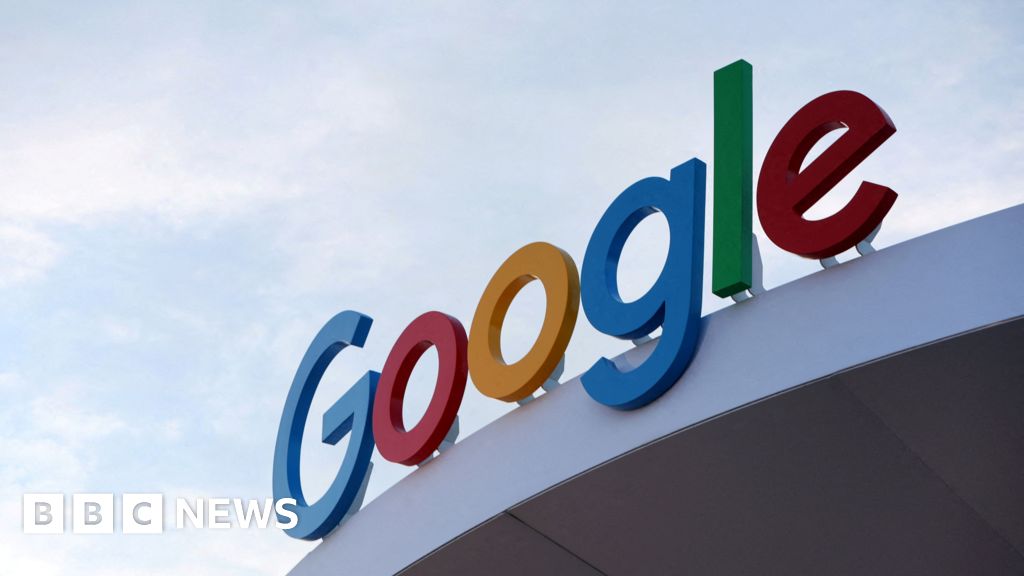
Google will not have to sell its Chrome web browser but must share information with competitors, a US federal judge has ordered.
The remedies decided by District Judge Amit Mehta have emerged after a years-long court battle over Google’s dominance in online search.
The case centred around Google’s position as the default search engine on a range of its own products such as Android and Chrome as well as others made by the likes of Apple.
The US Department of Justice had demanded that Google sell Chrome – Tuesday’s decision means the tech giant can keep it but it will be barred from having exclusive contracts and must share search data with rivals.
Google had proposed less drastic solutions, such as limiting its revenue-sharing agreements with firms like Apple to make its search engine the default on their devices and browsers.
On Tuesday, the company indicated that it viewed the ruling as a victory, and said the rise of artificial intelligence (AI) probably contributed to the outcome.
„Today’s decision recognizes how much the industry has changed through the advent of AI, which is giving people so many more ways to find information,“ Google said in a statement after the ruling.
„This underlines what we’ve been saying since this case was filed in 2020: Competition is intense and people can easily choose the services they want,“ the statement continued.
The tech giant had denied wrongdoing since charges were first filed against it in 2020, saying its market dominance is because its search engine is a superior product to others and consumers simply prefer it to others.
Last year, Judge Mehta ruled that Google had used unfair methods to establish a monopoly over the online search market, actively working to maintain a level of dominance to the extent it broke US law.
But in his decision, Judge Mehta said a complete sell-off of Chrome was „a poor fit for this case“.
Google will also not have to sell off its Android operating system, which powers most of the world’s smartphones.
The company had argued that off-loading parts of its operations, such as Android, would mean they would effectively stop working properly.
„Today’s remedy order agreed with the need to restore competition to the long-monopolized search market, and we are now weighing our options and thinking through whether the ordered relief goes far enough in serving that goal,“ Assistant Attorney General Abigail Slater wrote on X after the ruling.
Shares in Alphabet, Google’s parent company, jumped by more than 8% after the ruling.
Smartphone-makers such as Apple, Samsung and Motorola will also benefit.
Before the ruling, Google paid such firms billions of dollars to exclusively pre-load or promote the tech company’s products.
It was revealed at trial that Google paid more than $26bn for such deals with Apple, Mozilla and others in 2021.
Now, Google will not be allowed to enter into any exclusive contracts for Google Search, Chrome, Google Assistant or the Gemini app.
It means phone manufacturers will be free to pre-load or promote other search engines, browsers or AI assistants alongside Google’s.
Google will, however, be able to continue paying distributors for default placement.
Gene Munster, managing partner at Deepwater Asset Management, said the ruling was „good news for big tech“.
„Apple also gets a nice win because the ruling forces Google to renegotiate the search deal annually,“ he said on X.
Judge Mehta’s ruling „doesn’t seem to be as draconian as the market was expecting,“ said Melissa Otto, head of research at S&P Global Visible Alpha.
With Google’s search operation expected to generate close to $200bn this year, and tens of billions of that expected to go to distribution partners it is a win-win for the major corporate players involved in the case, Ms Otto said.
But Google competitor DuckDuckGo said the order failed to „force the changes necessary to address Google’s illegal behaviour“.
„As a result, consumers will continue to suffer,“ said DuckDuckGo founder and CEO Gabriel Weinberg.
The decision is not the end of the tech giant’s court battles.
Later this month, Google is scheduled to go to trial in a separate case brought by the Justice Department where a judge found the company holds illegal monopolies in online advertising technology.
Antworten